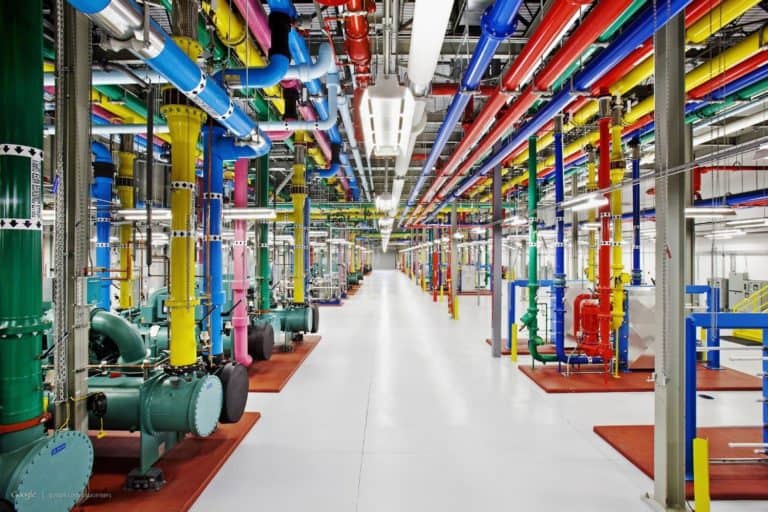Google has announced that it will invest a billion euros in the data centres in the Netherlands, according to the Financieele Dagblad. The internet giant is not only going to expand its data centre in Eemshaven, but is also building a new data centre in the province of Noord-Holland.
Google announced last year that it would be expanding its complex in Eemshaven. It also became clear in December 2018 that there would be a data centre in Hollandse Kroon, along the A7. However, the level of investment was not yet known.
The second data centre will be located in an area that is mainly known for its greenhouses. There is a chance that Google will want to reuse the residual heat from the data centre by supplying it to the greenhouses in the area. During the construction of the data centre and the expansion of the location in Eemshaven, there is work for a thousand people per day, per location. After the work, approximately 350 people will be working in Eemshaven and approximately 125 in Hollandse Kroon.
The Internet giant also announced that the data centres’ energy consumption is being matched by buying renewable energy. Google will therefore purchase sufficient electricity from wind turbines and solar panels to cover the energy consumption of the data centres.
Purpose of data centres
What the new data centre will be used for is not yet entirely clear. Google and its parent company Alphabet do not make any statements about their exact plans. However, the Internet giant has several European data centres, which are used to provide cloud services to other companies or to facilitate traffic on the search engine, Gmail or YouTube. However, this data center may be used to create an availability zone for the Netherlands from Hollandse Kroon.
This is the first time that Google has invested in two facilities within one country. According to them, this is because of the good digital infrastructure, renewable energy sources and the fact that local municipalities want to facilitate the investments.
This news article was automatically translated from Dutch to give Techzine.eu a head start. All news articles after September 1, 2019 are written in native English and NOT translated. All our background stories are written in native English as well. For more information read our launch article.